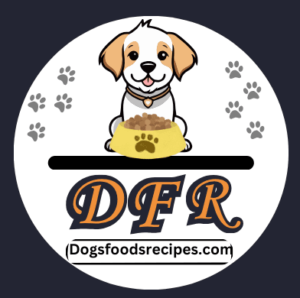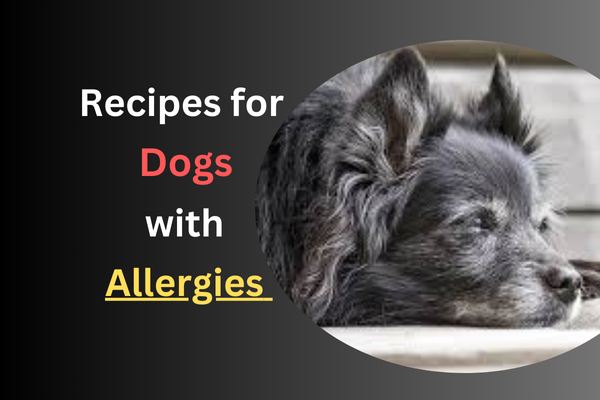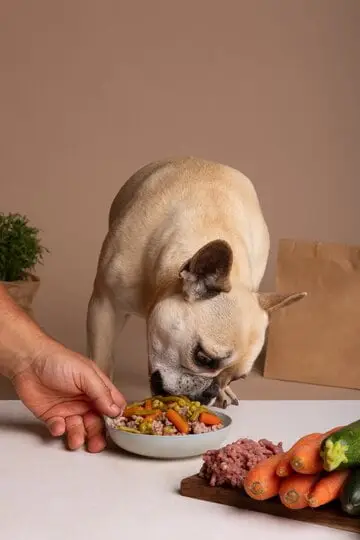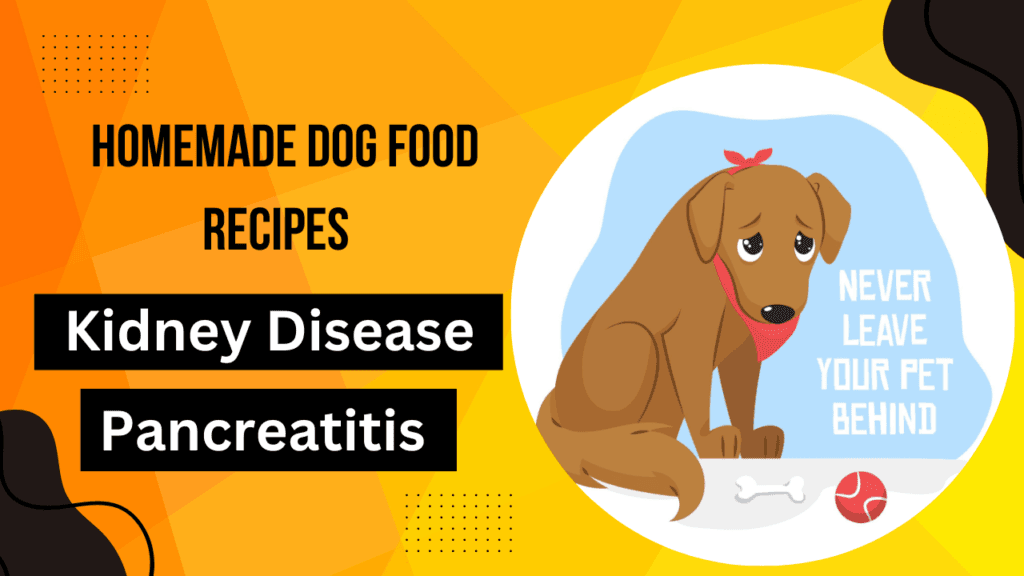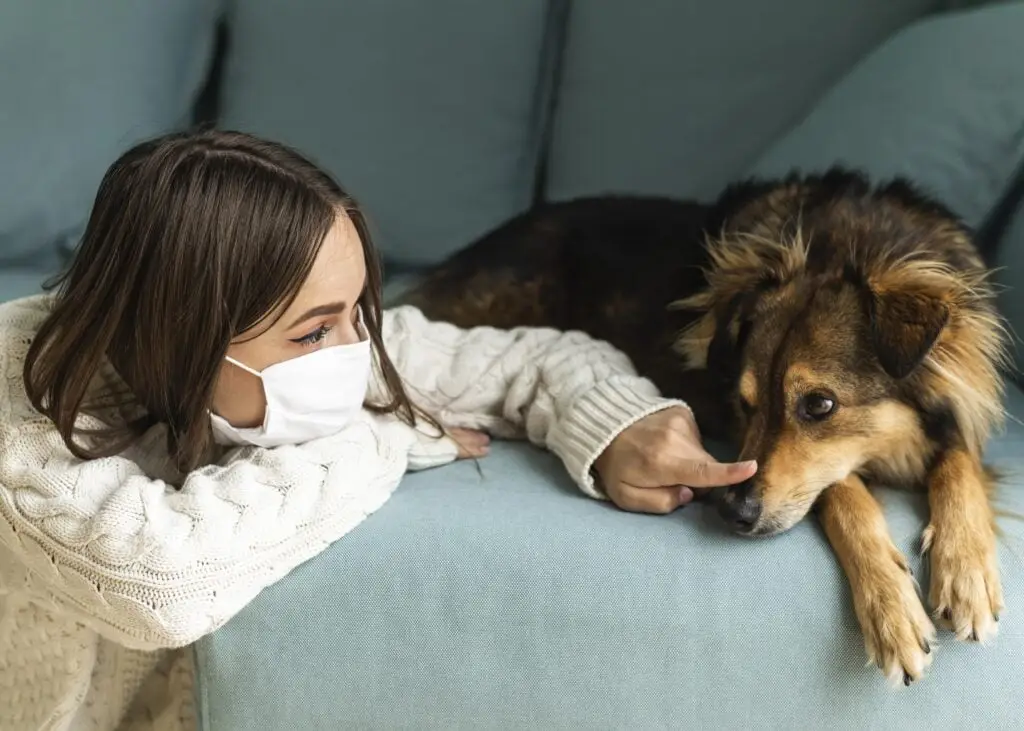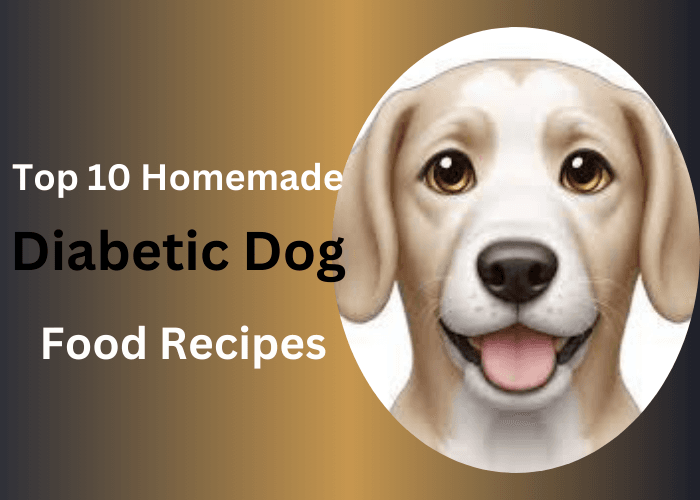Introduction
If your dog has allergies, you know how tough it can be to find food which will keep your dog healthy and happy. Common symptoms of allergies in dogs: Itchy skin, upset stomach, chronic ear infection. Fortunately, homemade recipes can help in many ways, avoiding common allergens and using fresh wholesome ingredients.
Detailed, vet-approved recipes for dogs with allergies, tips to help identify allergens and expert advice to make sure your dog is getting the right nutrients are provided in this article. So how about we get into and create meals that your dog will love but won’t trigger their allergies!
Understanding Allergies in Dogs
1. What Causes Allergies in Dogs?
Common causes include:
- Food Allergies: Triggers can be caused by proteins such as beef, chicken, or (dairy).
- Environmental Allergies: Reactions to pollen, dust, or mold.
- Contact Allergies: Things like certain shampoos or cleaning agents.
2. Symptoms of Food Allergies
Dogs with food allergies may show the following signs:
- Especially itchy skin, in the ears or paws or belly.
- Chronic ear infections.
- Vomiting, or diarrhea.
- Excessive licking or chewing.
3. Common Food Allergens for dogs
The most frequent culprits include:
- Beef
- Chicken
- Dairy
- Wheat
- Soy
- Corn
Why Homemade Recipes Are Perfect for Dogs with Allergies
1. Full Control Over Ingredients
When you make your own dog food at home you feed your pup what you know is safe, minus the allergens and nasty additives.
2. Fresh and Nutrient-Rich Meals
Fresh ingredients mean it uses homemade food which is free from artificial preservatives that make it healthier and more digestible.
3. Customizable for Unique Needs
Thanks to this, you can make your recipes suit certain allergies and health issues, making them perfect for sensitive dogs.
Essential Nutrients for Allergy-Friendly Dog Meals
1. Protein Sources
Choose novel proteins that your dog hasn’t been exposed to before, such as:
- Turkey
- Duck
- Fish (salmon or whitefish)
- Lamb
2. Carbohydrates
Opt for hypoallergenic carbs like:
- Sweet potatoes
- Brown rice
- Quinoa
3. Healthy Fats
Include omega-3 and omega-6 fatty acids to reduce inflammation and support skin health. Fish oil and flaxseed are excellent choices.
4. Vegetables
Add nutrient-dense, non-allergenic veggies such as:
- Zucchini
- Carrots
- Green beans
5. Supplements
- Probiotics: Improve digestion and boost immunity.
- Calcium: Essential for bone health. Use eggshell powder or vet-approved supplements.
Homemade Recipes for Dogs with Allergies
Recipe 1: Turkey and Sweet Potato Bowl
Ingredients:
- 1 lb ground turkey (organic if possible)
- 1 cup cooked sweet potatoes (mashed)
- 1/2 cup steamed green beans (chopped)
- 1 tablespoon fish oil
Instructions:
- Cook the ground turkey thoroughly in a skillet.
- Boil and mash the sweet potatoes until smooth.
- Steam the green beans until tender.
- Combine all ingredients in a bowl and mix well.
- Let the meal cool before serving.
Recipe 2: Salmon and Quinoa Delight
Ingredients:
- 1 cup cooked salmon (boneless and skinless)
- 1 cup cooked quinoa
- 1/2 cup chopped zucchini
- 1 teaspoon flaxseed oil
Instructions:
- Bake or steam the salmon until fully cooked.
- Cook quinoa according to package instructions.
- Lightly steam the zucchini for better digestion.
- Mix all ingredients and add flaxseed oil.
Recipe 3: Duck and Pumpkin Stew
Ingredients:
- 1 lb ground duck
- 1 cup canned pumpkin (unsweetened)
- 1/2 cup carrots (shredded)
- 1/2 cup brown rice (cooked)
Instructions:
- Brown the ground duck in a skillet.
- Boil the carrots until tender.
- Combine the duck, pumpkin, carrots, and cooked rice in a pot.
- Simmer for 10 minutes, then cool before serving.
Tips for Feeding a Dog with Allergies
1. Conduct a Food Trial
For 8 to 12 weeks, eliminate any suspected allergens. Do not add new ingredients all at once.
2. Monitor Portion Sizes
It can lead to weight gain and make allergies worse. The proper portion size for your dog is something you should consult with your vet about.
3. Keep Treats Allergy-Friendly
We do single ingredient treats, say freeze dried salmon, or homemade sweet potato chews.
4. Maintain Hydration
Make sure your dog has continual access to fresh clean water for digestion and healthy skin.
The Signs That the Diet Is Working
If your dog’s allergy-friendly diet is effective, you’ll notice:
- Reduced itching and licking.
- Fewer ear infections.
- Improved stool consistency.
- Greater energy and life.
Common Mistakes to Avoid
1. Using Allergenic Ingredients
Make sure double check that any foods you’re using aren’t inadvertently such as wheat or dairy.
2. Overlooking Supplements
Certain nutrients are lacking in allergy friendly diets. You add supplements such fish oil or calcium to guarantee proper diet.
3. Skipping Vet Consultations
Dogs with allergies should always have a homemade diet designed with the input of their veterinarian.
Conclusion
It doesn’t need to be difficult managing a dog’s food allergies. Homemade meals with hypoallergenic safe ingredients that you can make for that dog of mine give it delicious nutrition for their health and their comfort. These recipes will allow your dog to have relief of allergy symptoms and live a better quality of life whether you are trying turkey and sweet potato bowls or salmon and quinoa delights.
Before doing any major dietary change be sure to check with your vet and watch your dog closely for a reaction. An healthy, happy, companion is a well-fed dog!
FAQs About Recipes for Dogs with Allergies
1. How do I know if my dog has food allergies?
At times, it causes itchy skin, chronic ear infections and gastrointestinal problems. Tests can be done by a vet or an elimination diet suggested.
2. Can chicken be used in allergy friendly recipes?
Chicken is a common allergen. If your dog is allergic, just avoid strongly related fish or proteins such as duck or fish.
3. Are grains bad for dogs that are allergic?
Not all grains are bad. Hypoallergenic grains including quinoa or brown rice are easily tolerated by many dogs.
4. How often should I be feeding homemade meals?
So feed your dog two balanced meals a day, preferably divided and adjusted during the day, depending on weight and activity level.
5. Are these recipes safe for puppies?
It’s yes, but only after consulting your vet (to be sure that used recipes serves your puppy’s nutritional needs).
